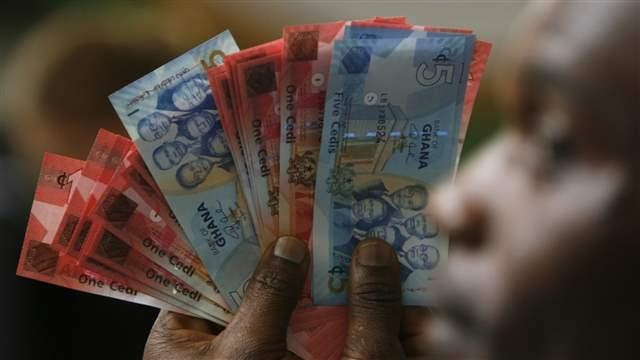Kenyan Shilling crosses record 120 amid election uncertainty as Angola waits
The Shilling fell below 120 to the dollar for the first time as Kenyan presidential candidate Raila Odinga officially challenged William Ruto’s election victory, filing a complaint with the country’s Supreme Court, which has 14 days to make a ruling.

While the currency recovered slightly to 119.84, it remains weaker than last week’s close of 119.62. We expect the political instability to continue weighing on the Shilling in coming days, pulling back to 120 levels.
Meantime, the election focus has shifted to Angola, where the opposition UNITA indicated a challenge to the official count pointing to victory for the ruling MPLA. UNITA said the initial outcome was not reliable and the party would publish its own tally based on a parallel vote count, according to Reuters.
The Kwanza appreciated to 427.38 on election day from 428.67 at last week’s close. Any challenge is likely to trigger weakening for the Kwanza.
Naira heads for 700 amid dollar scarcity
The Naira weakened against the dollar this week, trading at 691 from 683 at last week’s close as FX supply constraints persist.

UAE flag carrier Emirates said it will suspend flights to and from Nigeria from the start of next month due to the airline’s inability to repatriate funds trapped in the country. Importers and foreign investors have been faced with difficulties accessing FX due to scarcity of dollars on the official market.
Meantime, the central bank is seeking to increase the number of e-Naira users to 8 million as the central bank digital currency enters the second phase of its roll out, targeting the country’s unbanked population.
With little prospect of dollar supply increasing, we expect the Naira to continue weakening towards the 700 level in the near term.
Record low Cedi poised for further losses
The Cedi slumped against the dollar again this week, trading at a fresh low 9.89 from 9.38 on Friday’s close despite last week’s emergency 300 basis point rate hike that took interest rates to a record high 22%.

That has jacked up yields on local bonds to an average of 34%, according to Bloomberg, the highest among its emerging market peers—roughly 10 percentage points more than Zambia, the next highest.
Demand for dollars outstripped supply by $84.5m at the Bank of Ghana’s most recent forward FX auction, with sales limited to $25m.
We expect the Cedi depreciation to continue in the short term, though the pace of losses may slow given the liquidity tightness created by the bumper rate hike.
Rand outlook hinges on finance minister’s fate
The Rand traded flat at 17 to the dollar, having weakened sharply last week amid global risk-off sentiment.

There are pressures for the Rand at home amid calls for Finance Minister Enoch Godongwana to step down following sexual assault allegations.
South Africa’s annual inflation rose to 7.8% in July from 7.4% the previous month—the fastest pace of price rises since 2009.
We expect the Rand to continue trading around these levels in the near term, with the potential to depreciate further if Godongwana is forced out.
Pound weaker even as PM says close to IMF deal
The Pound weakened marginally against the dollar this week, trading at 19.17 from 19.15 at last week’s close as the currency continued to react to last week’s surprise resignation of central bank chief Tarek Amer.

Local currency bonds sold off, leading to further outflows of foreign currency—some $20bn has now been pulled out of the local debt market this year. Egypt’s Prime Minister Mostafa Madbouly this week said the country is getting closer to agreeing a fresh loan deal with the IMF.
Talks have dragged for months, reportedly over the requirement for Egypt to allow a more flexible exchange rate. We expect the Pound to remain under pressure in the week ahead.
Kenyan election uncertainty weighs on Ugandan Shilling
The Shilling appreciated marginally this week, trading at 3845 from 3846 at Friday’s close—though significantly weaker than the start of last week when it was 3758.

That broader weakness can be attributed to elevated dollar demand and the ongoing political uncertainty in neighbouring Kenya, Uganda’s largest trading partner.
With global risk sentiment also souring, we expect the Shilling to weaken in the week ahead towards the 3875 level.
Tanzania investment inflows keep Shilling steady
The Shilling was unchanged against the dollar this week, trading at 2327/2337, supported by investor inflows that offset dollar demand from importers.

The proposed $10bn Bagamoyo Port is said to have gained interest from several multinational companies who would be willing to finance the project after Chinese and Omani firms pulled out of talks with Tanzania’s government earlier this month.
Also this week, the Tanzania Investment Centre said there was a 14.6% uptick in investment projects in the 12 months to the end of June.
We expect the Shilling to continue trading at current levels in the week ahead, as investor inflows from the increased number of projects counter outflows from import demand.
Note to journalists: please feel free to quote from this briefing for news reports and let us know any requests for further comment or interviews via the contact details at the end, or by reply to this email. AZA is Africa’s largest non-bank currency broker by trading volume at over $1 billion annually. See https://www.azafinance.com
Issued by AZA. This Newsletter is produced as a service to our clients. It is prepared by our dealing professionals and is based on their understanding and interpretation of market events. AZA cannot be held responsible for any losses of whatever nature sustained as a result of action taken based on comments contained in this publication.
For more information, high-resolution charts or interviews, please contact:
Gavin Serkin
[email protected]
+44 20 3478 9710










